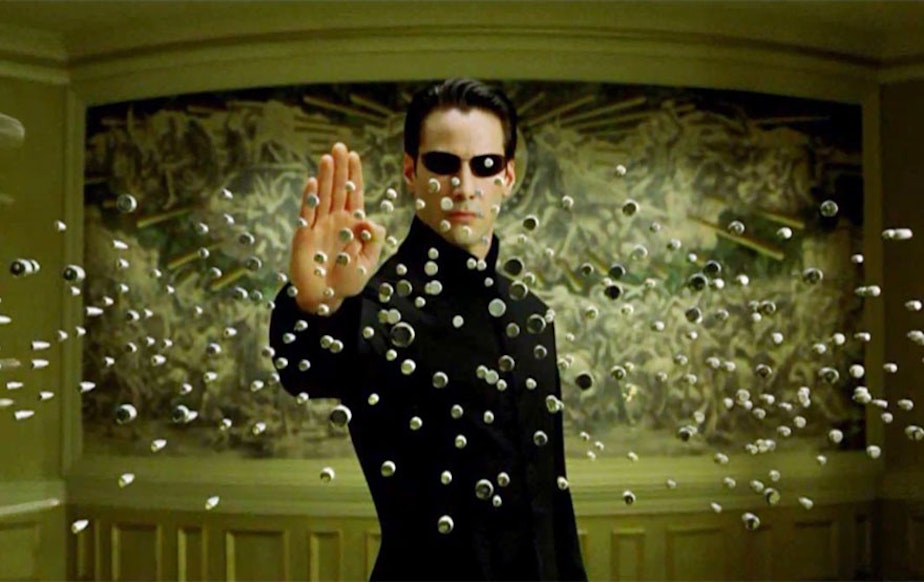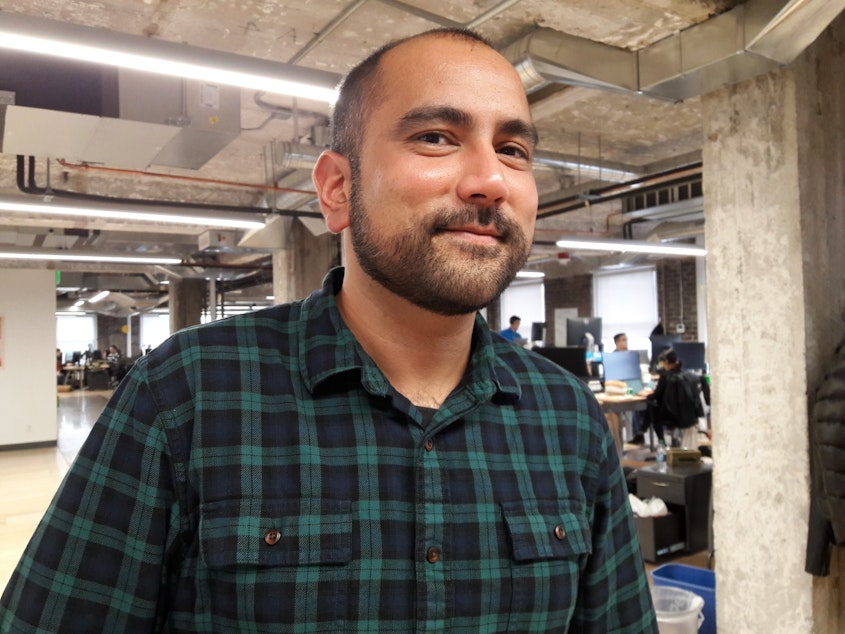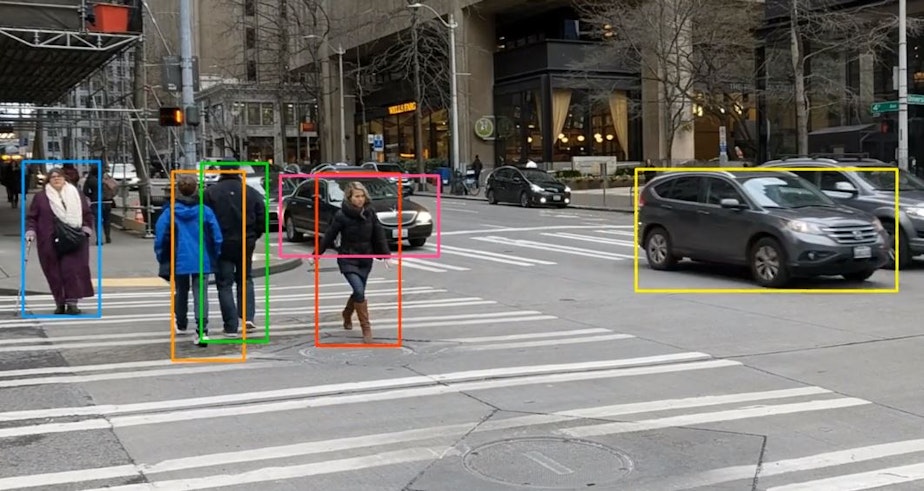What if Amazon’s artificial intelligence division left Seattle?

Amazon's HQ2 search is raising the question here in Seattle: When they open up the second shop, which employees will leave, and where will that leave Seattle?
Amazon has said it will let senior leaders decide whether to move their teams to HQ2.
That got us wondering: What would happen if Amazon's leaders moved its Alexa-focused teams, with their strong emphasis on artificial intelligence, elsewhere? Would that cut off further development of the AI industry in Seattle at its roots?
T
he roots of AI in the Seattle region predate Amazon. And Seattle's AI industry, in turn, has become bigger than Amazon.
Sponsored
You can find traces of Seattle's AI history at the Living Computer Museum, where the late Paul Allen preserved some of the earliest examples of AI.
There's a chess playing computer from 1965 that still works.
Raj Bharti, a consultant for AI and Cloud companies like Microsoft, brought me here to show me how far AI has come, by showing me where it started.
The computer chugs loudly for a few seconds, then spits out its counter-move on a dot-matrix printout.
Back in 1965, this chess-playing computer held the knowledge of every possible chess move inside its very large computer cabinet, said Bharti. The computer used that data set to make predictions about how best to win at chess. It's an early form of artificial intelligence, Bharti said.
Sponsored
Computers have grown exponentially smarter and smaller. But there's been another development just as revolutionary: the cloud.
No longer need any computer be limited by the size of its cabinet.
Amazon helped build the cloud that enabled the current AI revolution, but other companies have built up clouds since then, too.

Sponsored
Oren Etzioni uses cloud data and processing to power artificial intelligence programs at the Allen Institute.
He showed me an A.I. program that analyzes text. “And here what I do is I take a paragraph that’s about the movie 'The Matrix,'" Etzioni explained. "The computer reads the text, and correctly answers simple questions like: 'Who stars in the Matrix?'"
"Keanu Reeves," the program answered.

“However, the wheels come off the bus a little bit as we ask it 'How many people star in 'The Matrix'?'" Etzioni said. "It answers: '1999.'" (That's the year 'The Matrix' came out.)
Sponsored
Later, I fed it the entire 'Matrix' script and asked 'What does 'The Matrix' really mean?"
It told me it’s an exclusive web site where hackers hang out.

“When you ask it questions that require deeper understanding, kind of the gestalt of the movie – you’ll find the answers are invariably very unsatisfying,” said Etzioni.
Much of the work in AI today is centered around helping computers appear smarter. That requires more data. And it takes lots of humans to teach computers how to interpret that data.
Sponsored
Thousands and thousands of those humans live in Seattle. “If Amazon took all their AI people out of Seattle, we would not see even a dent in housing prices,” Etzioni said. He believes Seattle's AI industry is that big, even without Amazon.

Daryn Nakhuda used to work at Amazon. More recently, he founded Mighty AI. His company trains the AIs that power self-driving cars.

Right now, AIs are good at recognizing cars. But imagine their confusion when they see a car being carried on the back of a truck: What is that, a flying car?
At Mighty AI, humans point to trucks with cars on the back and effectively tell the AI: This whole thing is one truck. Remember that next time, OK?
Mighty AI set up shop in Seattle because its founders were there, but also because the area has lots of AI talent—not just at Amazon, but at every company from Getty Images to Zillow.
“I love Amazon, I hope lots of jobs stay here for a long time, they’ve done great things for the city," said Nakhuda. "But at the same time, I think we have good alternatives.”
A lot of people have concerns that someday, artificial intelligence could grow too powerful for us to control, or could generate negative consequences we can't predict because we aren't asking the right questions. But right now, AIs are still spitting out some pretty stupid answers.
The greater Seattle metro region is full of people trying to make AI smarter.




